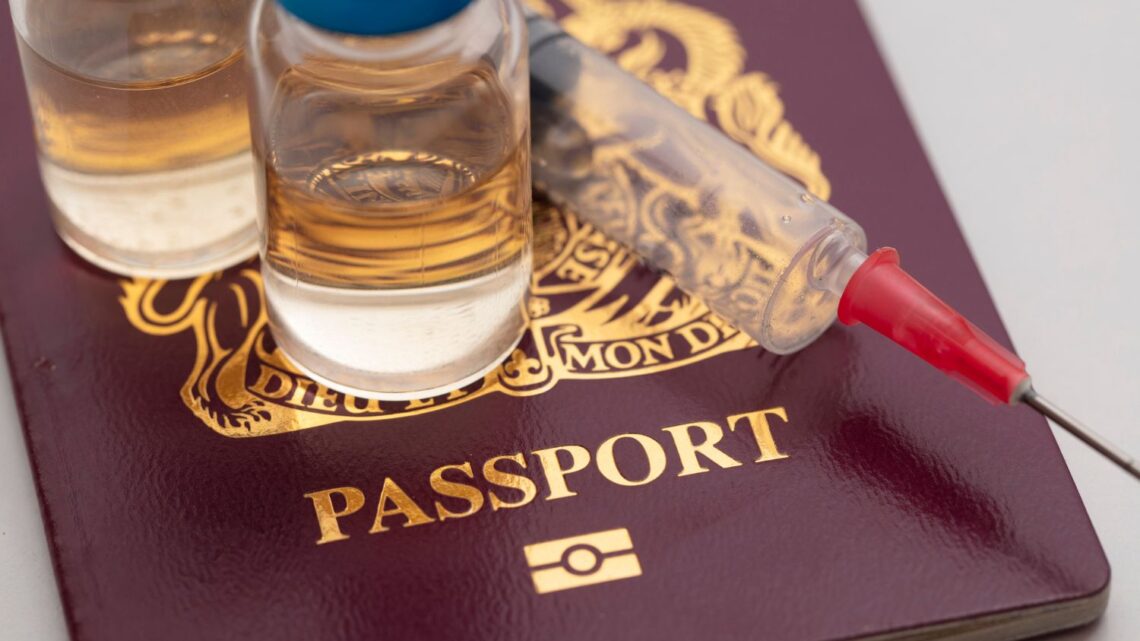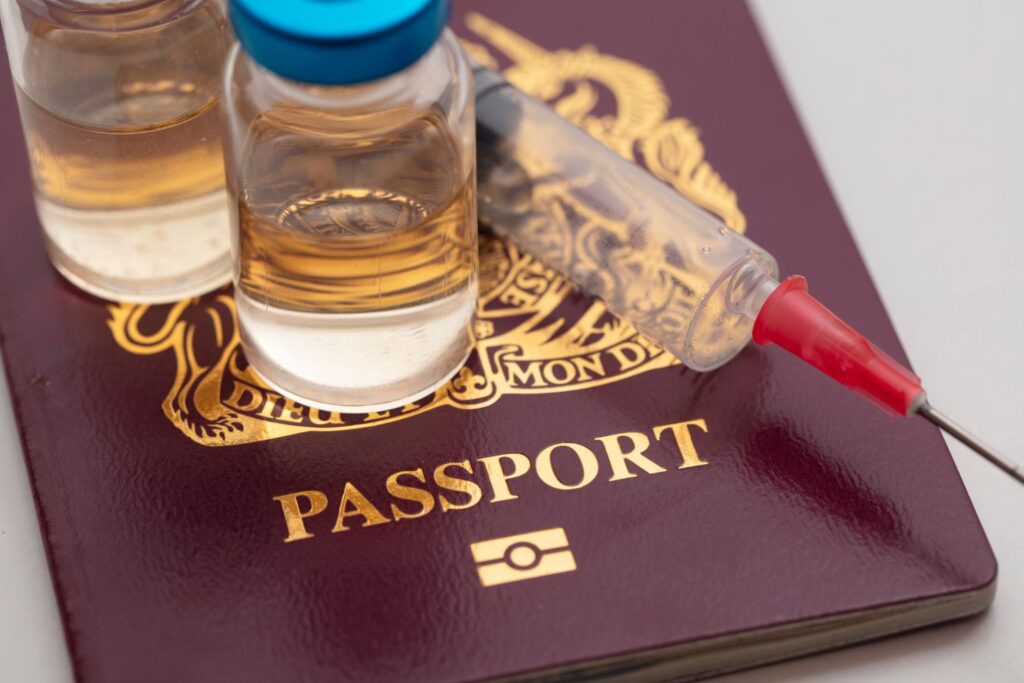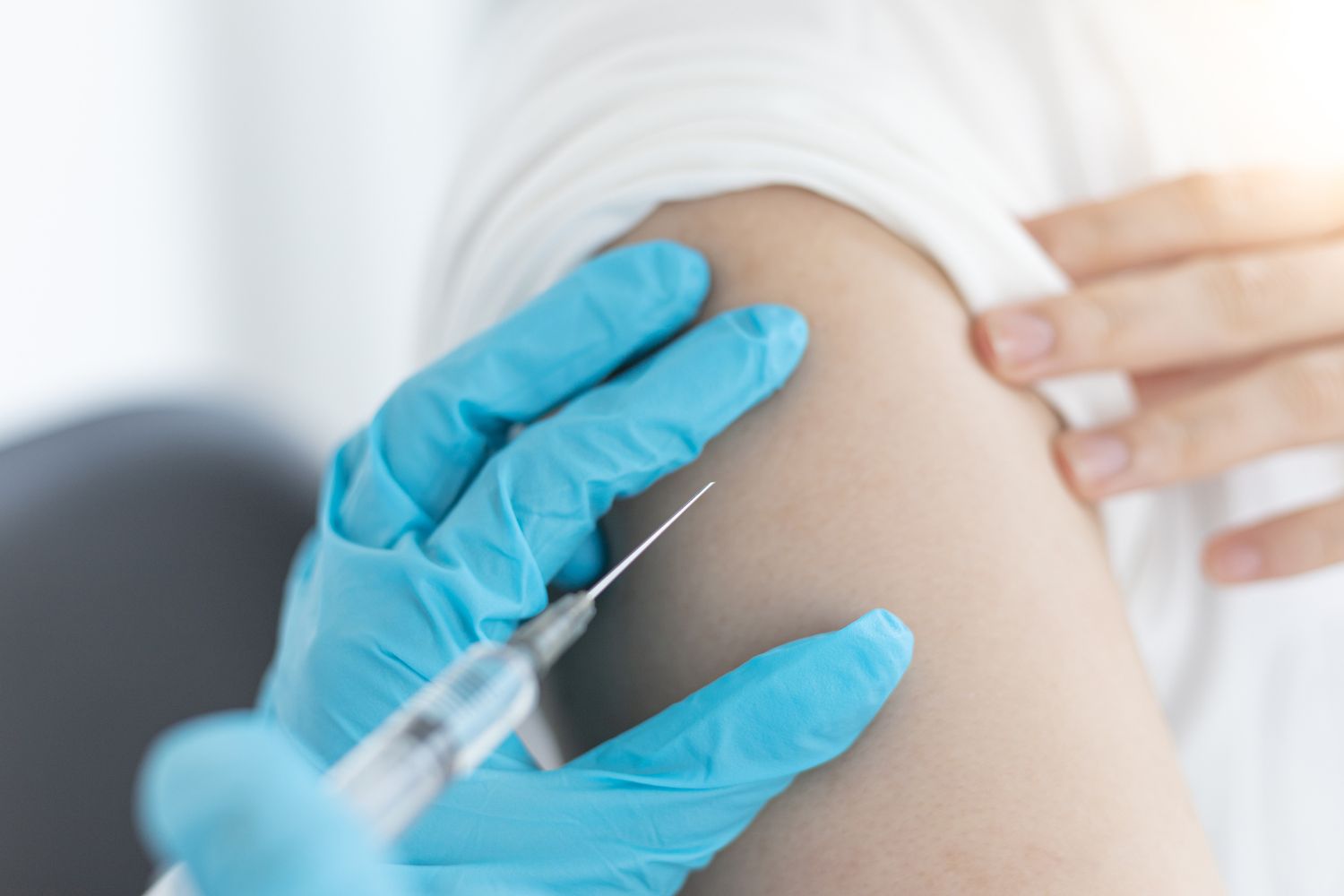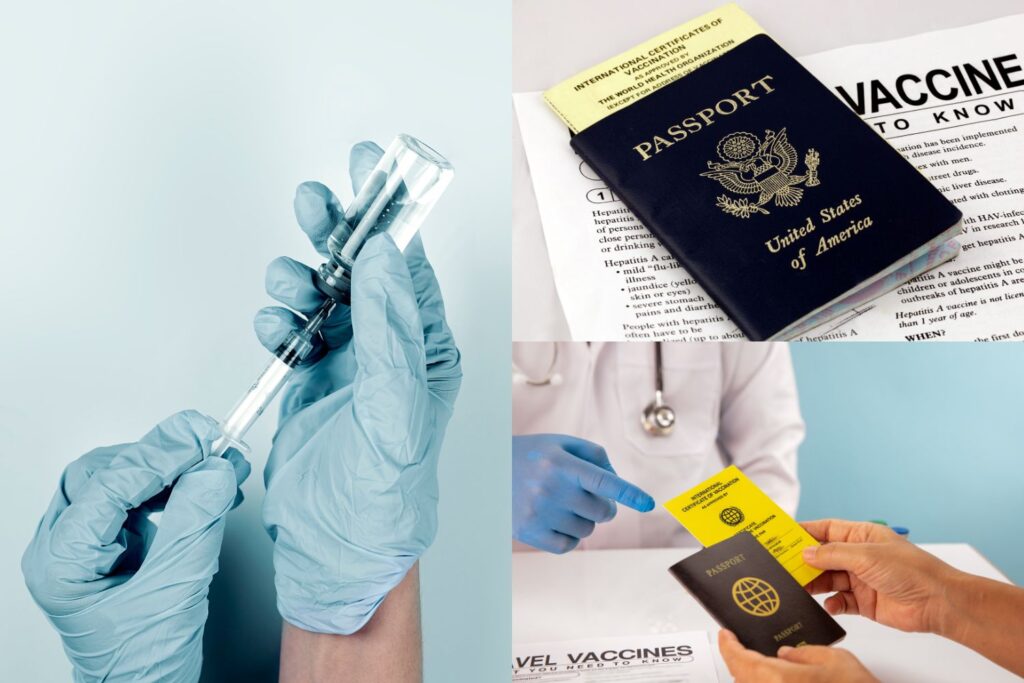

Vaccines to travel to Morocco
Definition:
Vaccines to travel to Morocco refer to the preventive immunizations recommended or required for individuals planning to visit the country. These vaccines protect travelers from infectious diseases that may be prevalent or pose a higher risk in Morocco. The recommendations are provided by health organizations such as the Centers for Disease Control and Prevention (CDC) and the World Health Organization (WHO) and are based on the traveler’s health, planned activities, and the regions to be visited within Morocco.
Recommended Vaccinations:

Routine Vaccinations: Ensure all standard immunizations are up to date, including:
- Measles, Mumps, and Rubella (MMR)
- Diphtheria, Tetanus, and Pertussis (Tdap)
- Varicella (Chickenpox)
- Polio
- Annual Influenza (Flu)
- Typhoid: Typhoid fever is transmitted through contaminated food and water in Morocco. The vaccine is available as an injection (shot) or oral capsules. It’s recommended for travelers who will be exposed to potentially contaminated food or water, especially in rural or less developed areas.
- Hepatitis A: Hepatitis A is also spread through contaminated food and water or close contact with infected individuals. The vaccine is given in two doses, with the second dose administered 6-12 months after the first. It’s recommended for all travelers to Morocco, regardless of their travel plans.
- Polio: Although Morocco is considered polio-free, travelers coming from countries where polio is endemic or outbreaks occur may need to show proof of polio vaccination. Adults who have not received a polio vaccine as a child may also receive a one-time booster dose.
- Rabies: Rabies is present in Morocco, primarily among domestic and wild animals. Travelers involved in outdoor activities such as hiking or camping, or those who may come into contact with animals, should consider getting vaccinated against rabies. The vaccine is given in a series of shots before potential exposure.
- Hepatitis B: Hepatitis B can be contracted through contact with infectious blood or body fluids, contaminated needles, or unprotected sex. The vaccine is given in a series of three shots over six months. It’s recommended for travelers who may have intimate contact with local residents or require medical treatment during their stay.
- Influenza (Flu): The flu vaccine is recommended for all travelers, especially during the flu season (October to March in Morocco). Influenza is spread from person to person through respiratory droplets, and getting vaccinated reduces the risk of contracting or spreading the flu.
- COVID-19: Depending on current regulations and requirements, travelers to Morocco may need to be fully vaccinated against COVID-19. Check the latest travel advisories and entry requirements for specific details.
- Pneumonia: Pneumonia vaccines are recommended for older adults, individuals with chronic medical conditions, or those with weakened immune systems. Pneumonia can be a complication of respiratory infections like influenza.
- Meningitis: Meningococcal meningitis is a risk in Morocco, particularly during the dry season (December to June). Travelers planning to visit during this period, especially if participating in large gatherings or staying in crowded accommodations, should consider getting vaccinated against meningitis.
- Chickenpox (Varicella): Chickenpox is a highly contagious viral infection spread through respiratory droplets or direct contact with fluid from chickenpox blisters. The vaccine is given as two doses for adults who have not had chickenpox or received the vaccine previously.
- Shingles (Herpes Zoster): Shingles is caused by the reactivation of the varicella-zoster virus, which causes chickenpox. The vaccine is recommended for adults aged 50 years and older to prevent shingles and its complications.
- Tdap (Tetanus, Diphtheria, Pertussis): The Tdap vaccine is a booster shot that provides protection against tetanus, diphtheria, and pertussis (whooping cough). It’s recommended for all adults who have not received a Tdap vaccine as an adult, especially if more than 10 years have passed since their last tetanus-containing vaccine.
- Measles, Mumps, and Rubella (MMR): The MMR vaccine protects against measles, mumps, and rubella, which are highly contagious viral infections. It’s recommended for travelers who have not received the MMR vaccine or who are not immune to these diseases.
Importance:
Vaccines are crucial for protecting individual travelers from serious infectious diseases and preventing the spread of these diseases across borders. They contribute to global health security by reducing the incidence of vaccine-preventable diseases.

Consultation:
Travelers should consult with a healthcare provider or a travel medicine specialist at least 4-6 weeks before their trip to Morocco to receive personalized advice and ensure they are up to date on all necessary Vaccines to travel. For more informations contact us.